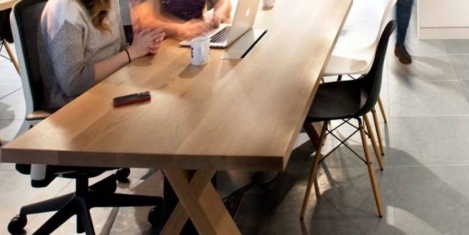December 23, 2016
Presenteeism doesn’t aid productivity, so employers should set workers free 0
 At this time of year, the days are short, the morning commute can be hellish and traffic grid-locked. Wouldn’t it be ideal if more employers recognised this and offered a solution involving flexible hours, remote collaboration or even home-working? And not just at Christmas, but the whole year round? More and more companies are switching on to the benefits this can bring in terms of their employees’ well-being and productivity. Firms can allow colleagues to occasionally work from home or a third place, provide tools that enable them to work remotely and support an agile working agenda. This can be done in parallel with making provision for a hi-tech and collaborative workplace where colleagues can get together regularly to connect, get work done and be part of an effective team.
At this time of year, the days are short, the morning commute can be hellish and traffic grid-locked. Wouldn’t it be ideal if more employers recognised this and offered a solution involving flexible hours, remote collaboration or even home-working? And not just at Christmas, but the whole year round? More and more companies are switching on to the benefits this can bring in terms of their employees’ well-being and productivity. Firms can allow colleagues to occasionally work from home or a third place, provide tools that enable them to work remotely and support an agile working agenda. This can be done in parallel with making provision for a hi-tech and collaborative workplace where colleagues can get together regularly to connect, get work done and be part of an effective team.
































January 20, 2017
The facts about sit stand work are already lost in the stream of narrative 0
by Mark Eltringham • Comment, Knowledge, Wellbeing, Workplace design
(more…)